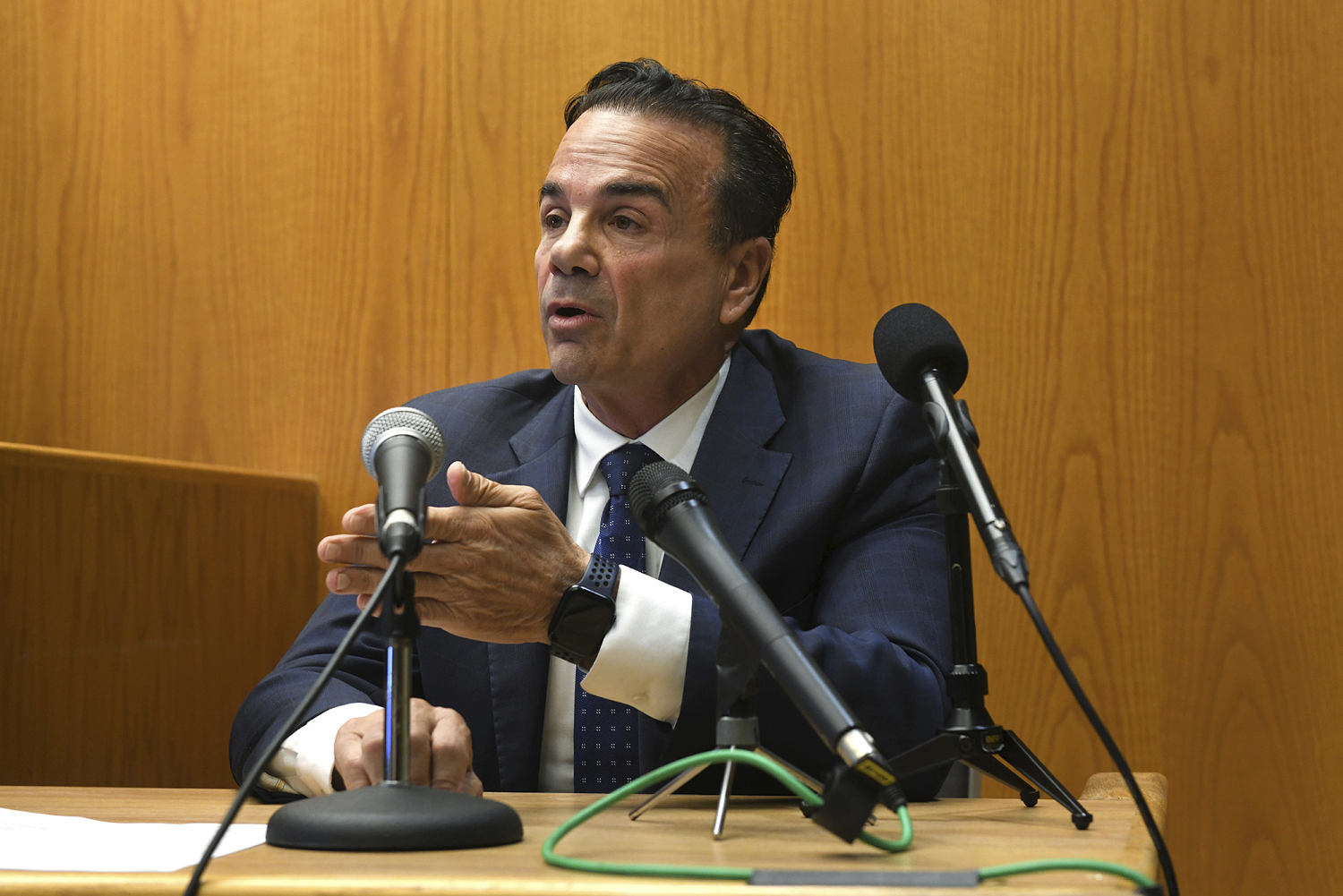[ad_1]

In January, voters in Bridgeport, Connecticut, will head to the polls for an unusual contest: a court-ordered redo of the city’s Democratic mayoral primary.
The Jan. 23 election will determine whether Bridgeport Mayor Joe Ganim fairly won his party’s nomination for mayor. If he loses, the city will have another mayoral general election in February, with his rival running as the Democratic nominee.
Ganim won in the September Democratic primary for mayor by 251 votes, but opponent John Gomes quickly alleged election fraud, releasing surveillance video of a Ganim supporter allegedly dropping stacks of absentee ballots into a drop box.
In Connecticut, there are strict laws on who can return a voter’s completed ballot, and the practice of collecting large numbers of ballots and returning them for others — often called ballot harvesting — is illegal.
In early November, a state judge said there was “shocking” evidence of wrongdoing — enough to call into question the results of the primary race. The judge ordered a new primary election, while acknowledging that he couldn’t stop the general election from taking place days later, which Ganim won.
Ganim has led the city on and off for decades: He served five terms as mayor before he was convicted of corruption crimes in 2003, and then was elected twice more after his release from prison. He won again in November, but he’ll need a third victory in January to secure his eighth term.
Ganim did not respond to a request for comment, but he has accused his rival of similar election wrongdoing.
“I own the fact that the court found people connected with my campaign engaged in serious voting irregularities,” Ganim told reporters in December, according to the Connecticut Mirror. He also demanded his opponent admit that “multiple people associated with his campaign engaged in clearly unlawful ballot behavior in the primary as well.”
In an email to NBC News, Gomes said that the city and mayor had declined to present any evidence of the alleged wrongdoing in court, even after subpoenaing and interviewing Gomes supporters.
“The City defendants could have compelled their testimony and they voluntarily chose not to do so. The City defendants could have introduced any relevant video and also chose not to do so during the court hearing. In fact, they withdrew their defense that the Gomes campaign committed misconduct, and did not raise it in any post-trial briefing,” he wrote in a statement.
The race is one of three election redos that have taken place this year or will next year, raising eyebrows among experts and advocates who worry that election do-overs — an incredibly rare recourse — may become more common as more candidates litigate election results.
In November, voters in Presque Isle, Wisconsin, held a court-ordered election do-over in a nonpartisan town chair contest over irregularities in the tight race, which had a one-vote margin of victory.
In December, two courts agreed that there should be a do-over in the sheriff’s race in Caddo Parish, Louisiana, where Democrat Henry Whitehorn won by one vote and Republican John Nickelson has claimed there were irregularities. A new election has not been scheduled, pending Whitehorn’s appeal to the state Supreme Court.
There have been fruitless calls for election do-overs in Ohio and Texas, too. Texas Republicans also advanced a bill earlier this year that would allow the secretary of state to call an election do-over in one county. The bill stalled, but some voting rights advocates and election experts say they’re watching the issue with concern.
Election do-overs are incredibly rare. Perhaps the best-known do-over in recent history took place in North Carolina’s 9th Congressional District in 2019, when state authorities refused to certify 2018 election results after a political operative was accused of voter fraud on behalf of Republican nominee Mark Harris.
The operative, Leslie McCrae Dowless Jr., was indicted on charges related to the election, but died before going to trial. Harris is again running for Congress in the district in 2024.
“It does seem that with these trends of the increasing politicization of election administration, the increasing litigiousness of election participants, and the increasing attempts at election subversion, that this is more common and more likely to arise as a question than in past years,” said Wendy Weiser, vice president at the Brennan Center for Justice.
She cautioned that courts play an important role in elections as a safeguard against subversion, but said it was important to monitor any uptick for a potential abuse of the judicial process.
Since former President Donald Trump refused to acknowledge his loss in the 2020 election and filed numerous baseless lawsuits in an attempt to stay in office, advocates have worried that the legal system would be abused by losing candidates and that lesser-known mechanisms of election administration would be misconstrued as problematic.
“It’s caught my attention. And given the broader system of mistrust in elections, disinformation, I want to make sure this doesn’t become another thing that could be used by people with bad intentions to feed the narrative that our results cannot be trusted, our elections cannot be trusted,” said Hannah Fried, executive director of All Voting Is Local, a group that advocates for expanding voting access in eight states.
Election redos are expensive for taxpayers, risk disenfranchising voters who cannot make time to vote twice, and can diminish voters’ trust in the system, Fried said.
But for Adav Noti, senior vice president and legal director at the Campaign Legal Center, do-over races like the one happening in Bridgeport, Connecticut, are simply an unusual facet of a working democracy.
“By definition, what we’re talking about is a case where the system worked,” he said. “It caught misconduct, and there’s a fix for it.”
[ad_2]
Source link
